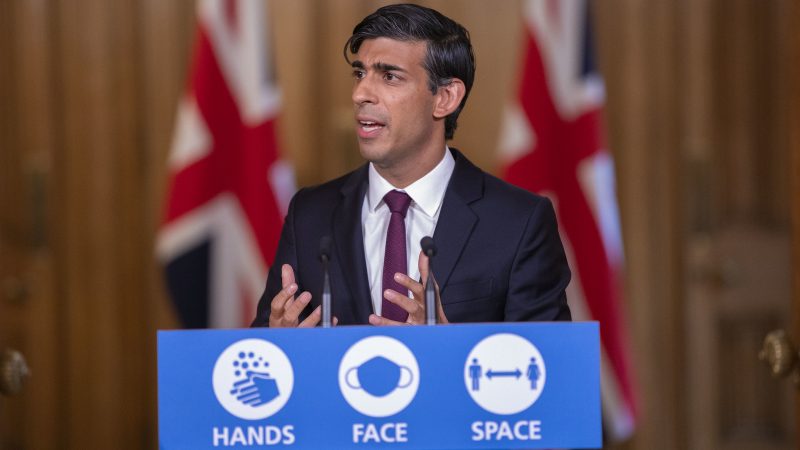
Rishi Sunak made the entirely predictable U-turn today of resuming a form of furlough, after repeatedly claiming that it would end this month and after announcing a ‘job support scheme’ that simply wasn’t up to the job. With further local lockdowns on their way and more restrictions being imposed as the Covid-19 infection rate rises, it was inevitable that the Chancellor would have to face up to the fact that you cannot both order businesses to shut and cut off financial support.
Under the newly unveiled plan, coming just two weeks after his original winter economy plan that was quickly found to be sorely lacking, employees who work for UK businesses forced to shut due to Covid restrictions will have 67% of their wages paid for by the government, up to £2,100 per month per employee. Their employers will only have to cover National Insurance and pension contributions. The scheme starts on November 1st and will be in place for six months. There will also be an increase in the cash grants available for businesses required to close, up to £3,000 a month.
The Treasury has acknowledged that costings will depend on how things will develop, but predicted that they will run at hundreds of millions a month. It would appear that we’ve gone from “we will do whatever is necessary” to “your jobs are not viable” and now back to “we will do whatever is necessary”, which Sunak pledged again today. This is welcome, of course. And yet the Chancellor has failed to address many of the existing gaps that have caused hardship throughout the pandemic and opened up new gaps in financial support.
“This plan has more holes in it than Swiss cheese,” one Labour source said. There is again a big problem with perverse incentives (also a significant issue in the job support scheme): as The New Statesman highlights, Mark Drakeford and Nicola Sturgeon will now be incentivised to impose restrictions that lead to businesses being forced to close by law, rather than setting rules such as the 10pm hospitality curfew, because the first category of firms will receive robust support and the latter will not. If your business is not forced to close but it has taken a massive hit, nothing has changed today.
Similarly, nothing has changed for the self-employed. From next month, they will be getting just 20% of average monthly profits (up to a total of £1,875), which is minimal but also could be 20% of basically nothing. The advice for those self-employers whose business has dried up? Apply for Universal Credit. Nothing, of course, has changed in relation to welfare – though Labour’s five recommended changes to the social security system are desperately needed. This includes removing the savings limit that currently disqualifies so many – particularly the self-employed who many have savings for their pension or for a rainy day, because that is what responsible people are supposed to do, but now have to burn through those savings. Weren’t the Tories supposed to encourage entrepreneurs?
The Chancellor clearly doesn’t have any interested in addressing the Excluded UK campaign, which has been highlighting the three million taxpayers who have fallen through the racks since the start of Covid. This group includes” the newly self-employed, i.e. those who set up business after April 6th, 2019; women who recently took maternity leave, as featured in the ‘Pregnant Then Screwed’ campaign; the employees who were denied furlough by their employers as they were shielding or on zero-hour contracts. Sunak has done nothing to change the financial situations of the already excluded. Unfortunately, the Tories are more focused on their internal battles around the cabinet table and against potentially rebellious backbenchers than they are on taking the action needed to support everyone being hit hard by Covid-19.




More from LabourList
‘SEND reforms are a crucial test of the opportunity mission’
Delivering in Government: your weekly round up of good news Labour stories
Labour place third in Gorton and Denton by-election as Greens gain seat